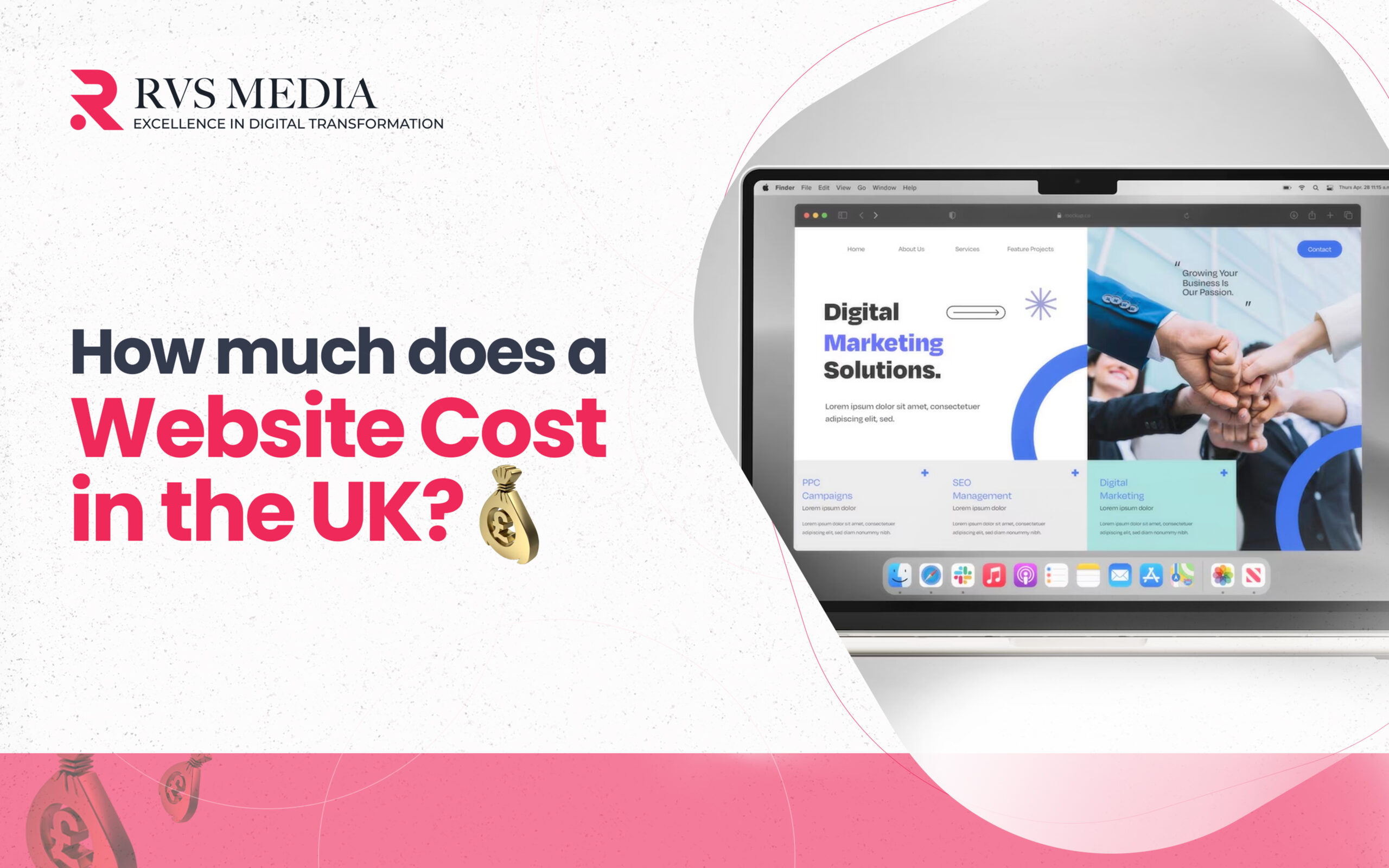How is Digital Transformation Shaping the Future of Businesses Across Industries?
- Apr 18, 2024
- By Rajeev Nar

Ever wondered how your favourite businesses seem to know exactly what you need, sometimes even before you do?
Well, that’s the magic of digital transformation! It’s like giving industries a superpower to make everything smoother, faster, and way more awesome.
So, what exactly is this digital transformation thing? It’s like giving a tech makeover to businesses, but not just for the sake of it.
Excited to learn all about digital transformation initiatives? Let us walk you through it!
What is digital transformation?
Digital transformation is essentially a makeover for businesses, but instead of a new coat of paint, they’re getting a digital upgrade. It’s like giving them a new set of tools and tricks to work smarter, faster, and better.
Imagine a company deciding to shake things up by bringing in all kinds of digital technologies—like fancy software, smart devices, and online platforms—to completely revamp how they do things.
They aim to create new ways of doing business or just sprucing up the old methods to keep up with the times.
But why bother with all this digital fuss?
Well, because the world is changing fast, and businesses need to keep pace. Digital transformation isn’t just a trend; it’s a necessity in today’s fast-paced market. It’s all about staying relevant and competitive.
And here’s the thing: it’s not just about looking cool or trendy.
Sure, the flashy tech stuff might catch your eye, but the real magic happens behind the scenes. By embracing digital tools and cutting-edge technology, businesses can streamline their operations, spark innovation, and ultimately deliver more value to their customers and stakeholders.
Why is digital transformation critical to business?
Digital transformation is imperative for businesses in today’s digital age due to several compelling reasons, backed by research and industry insights:
- Getting Ahead: Businesses that go through a digital makeover get a big boost over their competitors. Studies show that those who fully embrace digital changes are way more profitable. By using new machine learning tech well, they can offer better stuff and make customers happier, which keeps them coming back for more.
- Working Smarter: Going digital isn’t just about looking good; it’s about working better. By using artificial intelligence tools like automation and data crunching, businesses can get things done faster and with fewer mistakes. That means less time wasted on boring tasks and more time making smart decisions.
- Keeping Customers Happy: Nowadays, customers expect everything to be personalised and easy. Businesses that don’t keep up risk losing customers. By using digital tools like fancy software and smart systems, companies can give customers what they want, making them happy and loyal.
- Staying Quick and Creative: In today’s fast world, business processes need to be quick and ready to change. Going through a digital makeover isn’t just about keeping up; it’s about leading the way. By using new tech like AI and smart devices, businesses can spot trends and grow faster than the competition.
So, going through a digital makeover isn’t just a fancy idea; it’s a must for traditional business models that want to do well in the modern world.
Do you want to take your traditional business to the next level?
Transform it into a top-notch eCommerce powerhouse with RVS Media. Our team of experts is here to help you every step of the way.
Let’s make your digital transformation a reality! By going digital, companies can do better, work smarter, deliver better customer experiences, and keep growing.
Common Challenges Faced by Business Owners Across Industries
Running an ecommerce business might seem like a dream job, but it comes with its fair share of challenges that can keep business owners up at night. Here are some of the common struggles they face in simple terms:

- Lots of Competition: Imagine having a lemonade stand on a street where everyone else is also selling lemonade. It’s hard to get noticed! That’s what it’s like in the digital landscape. There are tons of other stores selling the same stuff, so it’s tough to stand out.
- Getting Customers: Just like a regular store needs people to walk in, an online store needs people to visit its website. But getting people to notice your store among all the others can be tricky. It takes a lot of work and sometimes money to get people to come and check out your stuff.
- Building Trust: When you buy something online, you can’t see it or touch it before you buy it. So, you must trust that what you see on the website is what you’ll get. Building customer trust can be hard, especially if you’re new and people don’t know you yet.
- Dealing with Orders: Once people start buying stuff, there’s a lot to do behind the scenes. You have to pack the orders, send them out, and ensure they get to the right place on time. It can be a real challenge to keep everything organised and ensure nothing goes wrong.
- Keeping Up with Tech: The online world is always changing. New things pop up all the time, and you have to keep up with them to maintain your competitive edge. Whether it’s updating your website or using social media, there’s always something new to learn.
The Role of Technology as a Catalyst for Change
Technology plays a vital role in driving change and improving how businesses operate in today’s digital world. Here are some key technologies that are like game-changers for businesses:

- Artificial Intelligence (AI): AI is like the super-smart brain behind many digital transformation journeys. It helps them make better decisions, serve customers better, and even do tasks automatically. You might have noticed AI in action when you chat with a customer service bot online—it’s pretty clever!
- Internet of Things (IoT): The IoT is all about connecting different devices together, like your phone talking to your smartwatch. For businesses, it means they can link up all sorts of gadgets and systems to gather data and get instant insights. For example, factories can use IoT sensors to keep an eye on machines and fix problems before they happen.
- Cloud Computing: Cloud computing is like having a super-powerful computer that you can access from anywhere. It lets businesses store and access data easily, run programs, and work together online. So, instead of having to buy and set up lots of fancy equipment, they can just use the cloud.
- Blockchain: Blockchain technology is like a digital safe that keeps things super secure and transparent. It’s great for things like keeping track of transactions or making sure data is reliable. Businesses use it to make sure things like money transfers or supply chain information are safe and trustworthy.
These digital technologies aren’t just fancy gadgets; they’re like superpowers that help businesses do amazing things. By using AI, IoT, cloud computing, big data analytics, and blockchain, businesses leaders can work smarter, be more efficient, and adapt to whatever the future throws their way.
How Does Digital Transformation Addresses Pain Points in different industries?

Digital transformation helps businesses solve many common problems in practical ways:
- Improved Efficiency: Automation takes care of repetitive tasks, reducing errors and cutting costs. This lets employees focus on more important work, making the whole operation run more smoothly.
- Better Customer Experience: Digital tools enable businesses to offer more personalized and seamless interactions. This makes customers happier and more loyal because they feel understood and valued.
Want to know how digital transformation is shaping customer experience in 2024? Check out our latest blog for all the insights!
- Smarter Decision-Making: Data analytics turn raw data into useful insights, enabling data-driven decision-making. This helps businesses make better decisions, plan more effectively, and improve their operations based on solid information.
- Easy Scaling: Digital platforms make it easier for businesses to grow. Whether it’s handling more customers or expanding to new markets, businesses can scale up quickly and efficiently to meet increasing demand.
- Encouraging Innovation: Digital transformation fosters a culture of continuous improvement and new ideas. This drives growth and helps businesses stay competitive by constantly finding better ways to do things.
By embracing digital transformation, businesses can address these pain points directly, becoming more efficient, customer-focused, data-driven, scalable, and innovative.
Key Components of Digital Transformation Across Industries
- Leadership and Culture: For digital transformation to succeed, strong leadership is essential. Leaders must be committed to driving change and fostering a culture that welcomes innovation and adaptability.
- Customer-Centric Approach: Putting the customer expectations at the center of your strategy is key. By focusing on customer needs and experiences for customers, businesses can adopt the right technologies to enhance satisfaction and loyalty.
- Agile Methodologies: Being flexible and using iterative processes allow businesses to adapt quickly and continuously improve. This agile approach helps companies stay responsive to market changes and customer demands.
- Technology Infrastructure: A solid and scalable IT infrastructure is the backbone of any digital transformation technology initiative. Ensuring your technology foundation is robust will support your digital transformation efforts effectively.
- Data Management: Good data management is crucial. This includes effective data governance and analytics, which provide the insights needed for informed decision-making and strategic planning.
RVS Media Digital transformation Case Studies Across Industries
Case Study: Amathus Drinks
Overview: Amathus Drinks, a leading UK distributor of premium wines, spirits, and beers, sought to streamline their eCommerce operations and improve customer experience.
Challenge: Amathus needed to manage a vast product catalog and handle complex B2B transactions efficiently while enhancing their online shopping experience.
Solution: RVS Media implemented a custom Magento eCommerce solution featuring:
- Extensive product catalog management
- Automated order processing
- A customer portal for bulk ordering and tracking
- Integration with their existing ERP system
Outcome: The digital transformation led to increase in online sales and reduction in order processing time. Customers enjoyed a seamless shopping experience, boosting retention and engagement.
Case Study: Greetings House
Overview: Greetings House, a major European wholesaler of greeting cards and related products.
Challenge: Greetings House needed to modernise their eCommerce platform to handle a large inventory and provide a B2C-like experience for B2B customers.
Solution: RVS Media developed a Magento-based solution with:
- User-friendly website design
- Advanced search functionality
- Custom bulk ordering features
- Live order tracking
- Marketing automation for upselling and cross-selling
Outcome: The new platform resulted in an increase in online transactions and an improvement in order processing speed, enhancing customer satisfaction and driving business growth.
Would you like to learn more about how we have helped our clients succeed in their digital journeys?
Take a look at some more of Check out our latest blog our case studies!
The Future of Digital Transformation
The power of technology continues to evolve at a rapid pace. The future of digital transformation holds endless possibilities. From the adoption of emerging technologies like augmented reality and blockchain technology to the integration of AI-driven analytics and predictive modeling, the landscape of digital transformation is constantly evolving.
Conclusion
In conclusion, digital transformation is reshaping industries worldwide, offering solutions to longstanding challenges and driving unprecedented growth. RVS Media stands out as a top-notch provider, delivering tailored solutions for businesses to thrive in this evolving landscape. Embrace the future with RVS Media and unlock limitless possibilities for success.













